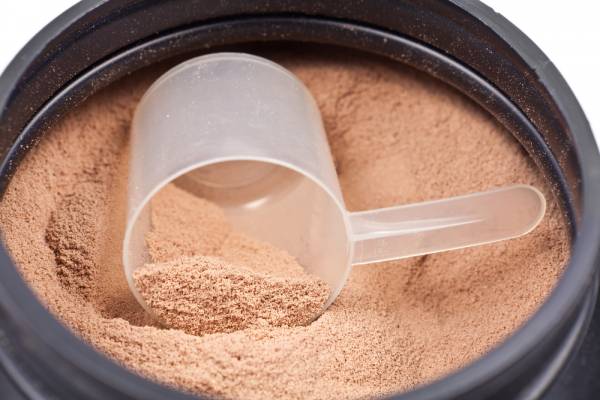When I talk to nearly anyone who studies sports nutrition and fueling these days, almost inevitably the topic of “nutrient timing” comes up. It is a relatively new way to look at how to provide your body the necessary nutrition to not only fuel exercise, but to recover and prepare for your next exercise bout as effectively as possible. In the context of recovery nutrition, some of the more recent research has us turning our heads and looking back over our shoulder to before our workout even begins. It indicates that what we eat before and during a workout may have a significant impact on the body’s ability to recover and adapt.
Over the last couple of months of getting deeper involved in a group workout community, I’ve found that as a whole, people are extremely passionate about everyday nutrition, though seem to be generally less focused on fueling in and around the timeframe of their workout. I think in the four months since I’ve been doing these group classes regularly, I can count on one hand the number of times I’ve seen someone sipping a carbohydrate-protein beverage during a workout. And it’s not much more often that I see people taking in recovery nutrition after workouts. It’s not to say that this is not getting done, maybe before arriving to the gym or after leaving, but in the context of some of the more recent research, the precise timing of calorie consumption is important.
There may be a number of reasons as to why some people are not hyper-vigilant about workout fueling. Maybe there is a sensitivity to sports nutrition products in general. But a very likely reality is that most people do not NEED to consume any nutrition to complete most workouts. But despite not NEEDING nutrition to complete a workout, why not do what you can to maximize gains (not to mention dollars and time spent)?
Getting back to the idea of nutrient timing, nutrition is not something that can be compartmentalized into clean categories. Instead, I think of it as a continuum. The body is constantly requiring fuel, but the specific requirements change in an analog manner based on a number of factors, including being in a working or resting state, and how long it has been (or will be) until the next workout. When it comes to specific recommendations on what to consume to maximize performance, I like to look to what the primary literature shows in a testing environment, then marry that up to my own personal experiences and see what the best combination is for me.
Effects of Pre-Workout Nutrition on Recovery
Some of the more recent research on recovery nutrition actually looks at the effects of consuming carbohydrate and/or protein immediately before a workout. The goal was to see what the effects on recovery might be as measured by certain body markers. A 2001 study by Tipton et al. had participants ingest a combination of carbohydrate and essential amino acids (35g protein, 6g amino acids) immediately prior to or immediately following a resistance-training workout. Researchers observed that the effect on net protein status (breakdown versus synthesis) was greater when the supplement was ingested before exercise as opposed to after.

Another study conducted by Willoughby et al. in 2007 looked more specifically at the effects of pre-workout consumption of protein and amino acids versus carbohydrates. Willoughby had participants complete 4 days per week of relatively heavy lifting (3 sets of 6-8 reps at 85-90% 1RM) over a 10-week period. The participants were assigned to either a 20g protein group (14g whey and casein plus 6g free amino acids) or a 20g carbohydrate group, ingested before and after the workout for a total of either 40g protein or 40g carbohydrate per day. What he found was the group that ingested the protein experienced greater increases in body mass, fat-free mass, strength, and had generally up-regulated markers of muscle synthesis and anabolism.
Getting It Done
These are just two studies that show what you eat before your workout may significantly affect your performance in the gym and ultimately fitness gains over time. By nature many athletes tend to think of nutrition as secondary to a workout, but coaches and trainers know that you don’t get stronger while working out, you get stronger while resting after your workout. What you put in your body is one factor that can have a major impact on the gains you see.
When it comes to what you actually eat to get this nutrition, there are limitless choices. One of the biggest things that supplements (as used in these studies) provide is convenience, and the ability to dial-in nutrient values specifically to your needs. If you are working out in the morning, it can be time consuming to prepare whole-food pre- and post-workout nutrition options, not to mention can be difficult to comfortably ingest them before a workout. For me there is greater value in getting the nutrients that will benefit my body in a convenient, easy to consume, and time efficient way versus the alternative of potentially foregoing nutrition due to inconvenience or laziness.

So what should you actually eat? It depends. In his review of pre-exercise nutrient ingestion, the following statement from a literature review by Kersick et al. in 2007 sums up the situation well, “Regular ingestion of various protein sources in conjunction with carbohydrate sources stimulates greater increases in strength and favorably impacts body composition when compared to carbohydrate alone.” But science is yet to say, “Eat this in this exact amount and you will see gains.”
Going back to what I touched on near the beginning of this article, nutrition is a continuum, and your body’s needs will change based on what you are doing. For the average CrossFit or similar workout, which generally places demands on both the aerobic and muscle systems, a dose of about 20-30g of carbohydrate to top off glycogen stores and provide immediate energy combined with about 10-20g of protein to get the strength related benefits discussed above is a good place to start.
Quite a few studies look at what effects nutrition before and during a workout has on both performance and the body’s ability to recover. I look forward to writing about these topics in the future, but in short, the research indicates that even in resistance training scenarios, what you consume during your workout may have as big, if not greater impact on recovery than what you eat after your workout. For the athlete training multiple times a week (not to mention living a normal day-to-day life), getting the most out of each workouts by putting the proper fuel into your body can make a big difference in your ability to perform over the long term.
Photos courtesy of Shutterstock.






